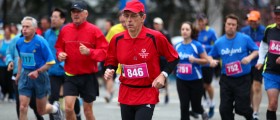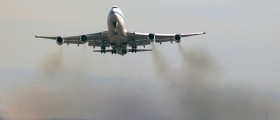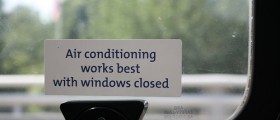
Jet lag
One of the principal causes of jet lag is getting moved into another time zone. Periods of daylight and darkness in other time zones are different than period that the traveller is accustomed to. Our internal clock is wound up to our time zone and our body "knows" when is morning, noon, afternoon, evening, night and acts accordingly.
But when you make a rapid transfer to a time zone where, in example, your internal "noon" is 2 AM by local time, you are going to be seriously out of sync with the normal rhythm of the world there. It will take some time to adapt to the new rhythm, typically a day or day and a half per one hour shift. Children find it easiest to adapt, while those people who have a strict day routine will be devastated.
Causes of jet lag and means to fight it
One of the most important things to do is to rest well before flight. If you enter that plane stressed, tired, nervous, excited, irritated, then you are so asking for it. You can take a nap during the flight, but do not count on that as your primary means of rest and relaxation. Further, there is trouble with atmosphere in the aircraft and most people will take it badly. Air in the aircraft is dry, dry enough to dry out your skin and mucous membranes, such as in nose and throat.
People who are used to humid climates (i.e, people living by the sea, or people from regions where it rains frequently) handle the dry atmosphere pretty badly. On top of that, dried mucous membranes are more susceptible to infections that can cause colds, coughs, sore throat, or even flu. It is therefore, wise to have a bottle of water handy and to sip some water during the flight. Air pressure is different. Although the aircraft is pressurized, the pressure is still much lower than on the ground, which can also be hard on some people.
Then, there is not enough oxygen in the air. Aircraft cannot be aired, so oxygen is supplied from gas containers. It costs money so some airlines may not open the tap all the way. Lack of oxygen will make you tired and nervous and can cause headaches.
It is a good idea to avoid alcohol while airborne; it affects you 2-3 times stronger than on the ground. Coffee and tea served in aircraft are high in caffeine, which can be aggressive on the stomach. Also, be wary of aircraft meals.
Finally, worst thing during the flight is immobility. You will be spending most of the time in a tight seat, which is bad. Remember to flex limbs whenever you can. If you switch flights, exercise while on the airport. Take a shower if you can.

















Your thoughts on this
Loading...